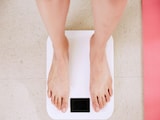Imagine this: You've decided to ditch your beloved samosa-chutney combo and jalebi after getting bombarded with health warnings that it is not good for your body. You have finally decided to cut off foods that have excess oil, fat and carbs, including the two that we have mentioned above.
But just after eating 'clean', you realise that you might be falling sick. Your head hurts, your stomach gets rebellious, and your mood swings hit you hard. You start to wonder if switching from the high carb, unhealthy foods to a bowl of chia pudding and kale salad was even worth it?
You're not alone. While switching to a healthier diet sounds like the golden ticket to glowing skin, boundless energy, and a flatter stomach, the reality, for many, is that the journey can be a bit bumpier.
We spoke to experts to uncover why your body might react differently than you would expect, when you start eating "clean".
Is Your Body Freaking Out?
"People often experience side effects like bloating, headaches, fatigue, and irritability when they start cutting out processed foods and sugar," explains Komal Malik, Head Dietetics, Asian Hospital.
"It's a kind of withdrawal. Your body is adjusting to the absence of refined carbs, caffeine, or excess salt-substances it may have become dependent on," she adds.
Pranjal Kumat, a dietitian based in Gurgaon, agrees and adds, "Yes, and that surprises a lot of people. When you change your diet, especially suddenly, your body might react. I often see tiredness, headaches from sugar or caffeine withdrawal, and bloating due to an abrupt increase in fibre. Even mood swings and cravings are common."
These symptoms can feel discouraging, but experts assure that they're mostly short-lived and simply your body's way of readjusting to a new normal.
Inside Your Gut
That healthy salad and brown rice bowl may give you a feeling that you're doing everything right, but your gut bacteria is clearly not happy with this sudden change in your diet just yet.
When you change your diet, especially suddenly, your body might react. Photo: Unsplash
"Your gut is home to trillions of bacteria-and they don't love surprises. A sudden increase in fibre, from things like vegetables, lentils, and whole grains, can lead to gas, bloating, or even changes in bowel movement. I always suggest increasing fibre slowly and drinking plenty of water," says Kumat.
Ginni Kalra, Head of Dietetics at Aakash Healthcare, adds, "A sudden shift can disturb the gut microbiome, causing short-term digestive issues. But this is a sign that your gut flora is realigning, not that something's wrong."
Kanikka Malhotra, a consultant dietitian and diabetes educator, also warns against fibre overload. "Restrictive or low-fibre diets reduce gut bacteria diversity. Gradual inclusion of fibre-rich whole foods helps nourish gut health and supports your immune system," she adds.
Is This New Diet Actually Good For You?
Feeling worse before feeling better is one thing - but how do you know if your "healthy" new diet is doing more harm than good?
"If you're consistently feeling drained, dizzy, or foggy even after 2-3 weeks of a new diet, it's time to revisit it. Not every trendy plan suits every person. Keto, intermittent fasting, or vegan diets may work wonders for some but may harm others if not done mindfully," says Dr Malik.
Kumat suggests checking in with yourself: "Do I feel more energised, or always tired? Am I sleeping better? Am I obsessed with rules or feeling mentally at ease? A good diet should support your energy, digestion, and be flexible enough to enjoy life. If it's only giving you rules and guilt, it's not the right fit."
Malhotra adds, "If you have persistent fatigue, mood swings, nutrient deficiencies, or even things like irregular menstruation or digestive distress, these are red flags. It's important to track symptoms and seek professional advice."
So What Does 'Eating Clean' Actually Mean?
Clean eating is less about perfection and more about intention.
"To me, eating clean means choosing food that nourishes your body without overwhelming your mind. It's not about fear or cutting out every indulgence. It's about feeling good, not perfect," says Kumat.
Kalra advises to keep it simple, "Think home-cooked meals, seasonal vegetables, whole grains, nuts and seeds, and less packaged stuff. It's about awareness, not extremes."
Malhotra echoes the same. "Minimally processed, nutrient-rich foods are the key. Fresh fruits, vegetables, whole grains, lean proteins, and healthy fats form the core. It's not about banning food, it's about improving the quality of what you eat," she adds.
'Make It A Lifestyle'
Experts suggest that the biggest mistake that everyone seems to be making is going from zero to salad in 24 hours.
"Start small. Replace one processed meal a day with a fresh one. Plan your meals, don't label food as 'bad', and listen to your body's hunger and fullness cues," says Malik.
Kumat agrees, "Make slow, steady changes. As a dietitian, I don't promote all-or-nothing thinking. I help clients make realistic, sustainable changes. One meal at a time."
Remember
Switching to clean eating might feel rough at first, bloating, mood swings, energy crashes, but these are often temporary. The goal isn't to eat "perfectly" but to eat better. And that means going slow, being consistent, and tuning in to how your body responds.
As Malhotra rightly puts it, "Healthy eating isn't a 21-day challenge. It's a mindset shift, one that should feel empowering, not punishing."
So, if your samosa-jalebi days are behind you and your gut's throwing a tantrum, don't panic. Be patient, go easy, and remember, eating clean is a long-term relationship, not a rebound.











